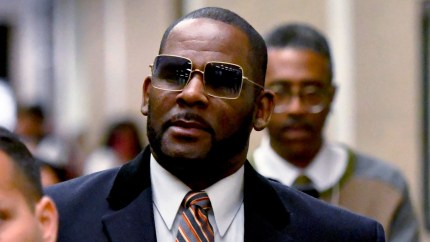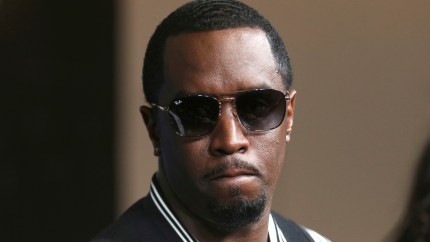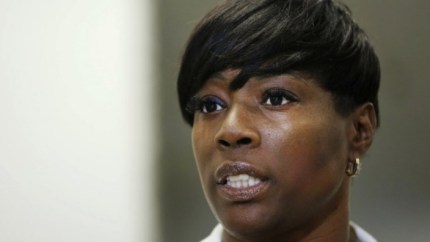Gina Prince-Bythewood, Aaron Pierre and more ‘Genius: MLK/X’ creatives on exploring the humanity of civil rights icons
The Nat Geo series unpacks the mental and emotional health and personal lives of Malcolm X, Martin Luther King Jr., Coretta Scott King and Betty Shabazz.
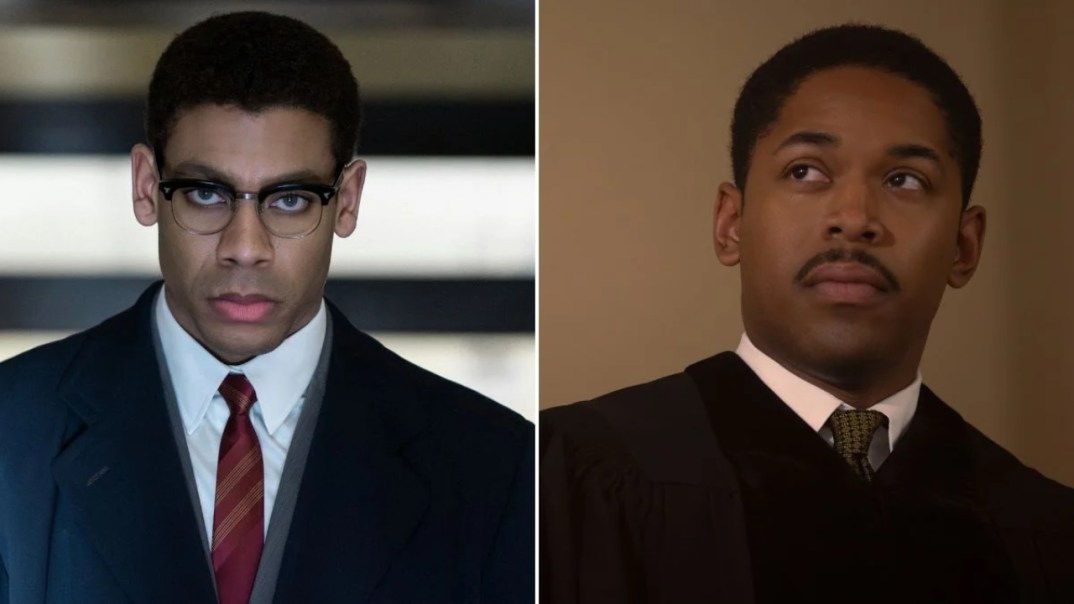
Americans are very familiar with the stories of Malcolm X and Martin Luther King Jr. Both men were civil rights icons and social justice activists who have been documented, studied, researched, filmed and celebrated by the Black community for decades. But the stories we know and the images we’ve watched don’t paint the full picture of their true experience, as seen in the latest season of the anthology series, “Genius: MLK/X.”
The fourth edition of the National Geographic series — which premieres on Nat Geo today, Feb. 1, and streams on Disney+ the following day — shows the lives of Malcolm and MLK from their time as children to their heartbreaking assassinations. The audience sees how their upbringings shaped the men they came to be, how they each received an education that changed the trajectory of their lives (King at Boston University and Malcolm while he was incarcerated), and how they flourished in their work as activists and shaped the country we live in today.
We also see how that work impacted them, both mentally and physically. King is shown struggling with depression in his younger years and post-traumatic stress after being stabbed at a book event as an adult. Malcolm is seen visiting a doctor, who tells him how seriously stress is affecting his health.
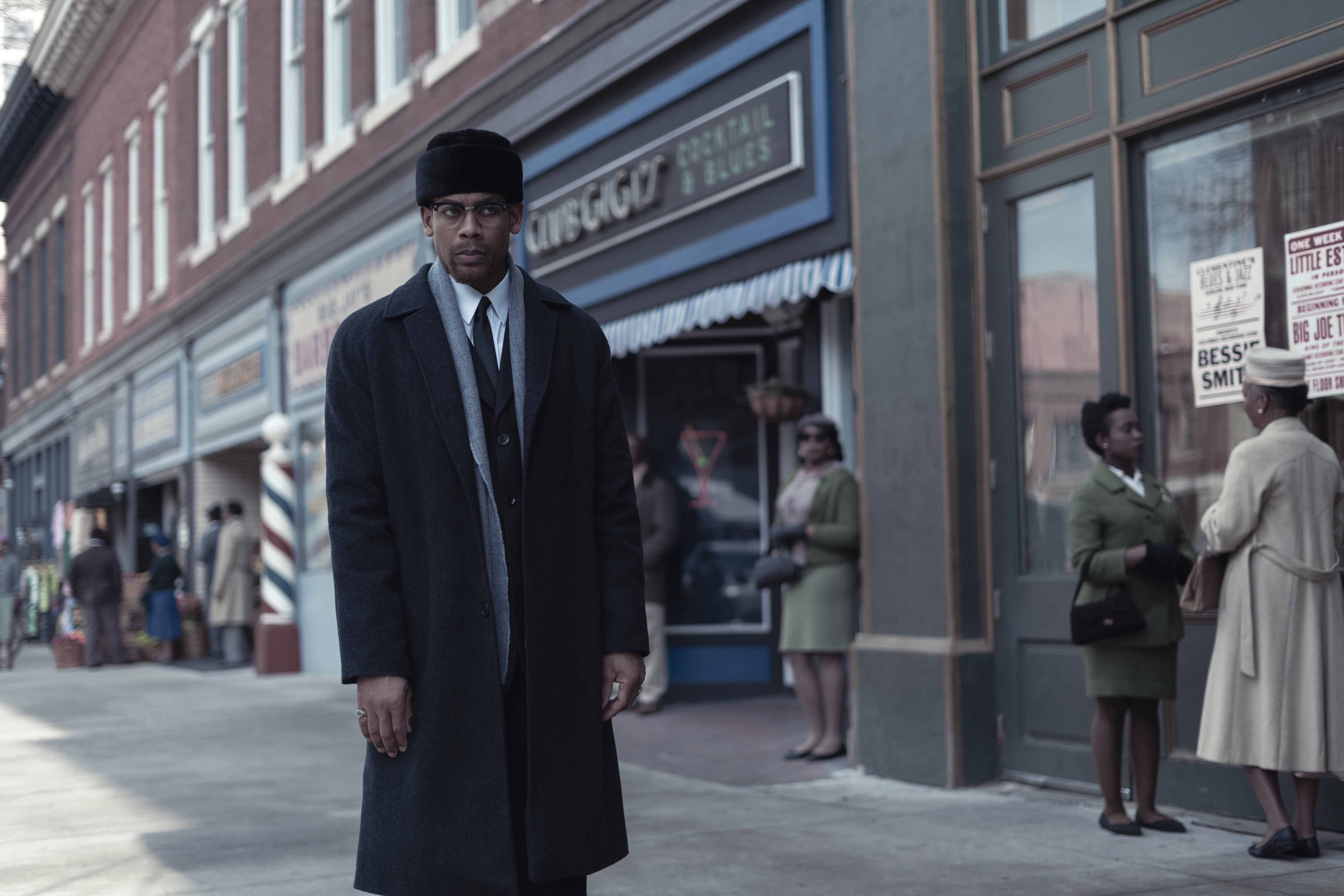
Executive producers and spouses Gina Prince-Bythewood and Reggie Rock Bythewood say this emphasis on mental health and the effects of trauma in “Genius: MLK/X” is purposeful.
“We have often felt that you’re forced to choose between the two — do you support Malcolm? Do you follow Martin? But we knew that they were really the opposite sides of the same coin,” Prince-Bythewood told theGrio. “They had the same desire and the same goal; they just went at it a little differently. We wanted to be able to tell that story of how similar they really were, not just in the iconic moments and historical moments, but in their personal lives.”
“The question of mental health came up,” Reggie Bythewood added. “We really never deal with that when it comes to our icons because we don’t want them to seem weak or anything. It doesn’t make them weak, but it is just a reality of a part of their lives and challenges. Some of the challenges that Martin had coming up — this sort of thread of overcoming depression and sorrow. That is something that they dealt with, and we hadn’t seen it before.”
The producer went on to share that the creative team felt it was time to share these insights into King’s and Malcolm’s lives, saying it was “necessary” in order to make them “more human and accessible to us.”
Recommended Stories
Aaron Pierre, who plays Malcolm X, told theGrio that going to New York and exploring the wide range of emotions that Malcolm experienced as an activist, friend, father and husband was “such a blessing and such a privilege.”
“I felt very empowered and energized to give my very best portrayal to the very best of my abilities of Malcolm,” Pierre shared. “Something that was reinforced during this process was instilled in me at a very young age by my family members and my parents, and that is to walk in faith. This [role] was a feat that was enormous in its size, responsibility and magnitude. I was scared to embark on that journey. I’ve had to walk in faith, trust and focus on one step at a time. I think that directly ties into and connects to where these men and these women were at this time in their life.”
To Kelvin Harrison Jr., who stars as King, exploring the civil rights leader’s emotional and mental health provided “the more exciting parts of the show for me — especially as an actor — because I’m just obsessed with psychology and human behavior.” He went on to say that society tends to keep leaders within the Black community on a pedestal without seeing their humanity.
“They are very vulnerable, walking through a lot of disrespect, a lot of hate, a lot of evil and a lot of people that really genuinely want to hurt them and kill them,” Harrison told theGrio. “That is a very scary thing to experience on a daily basis. How do you find a way to not allow that to define you and make you want to run away from the movement? But the beauty of this series is that we get to investigate all of that.”
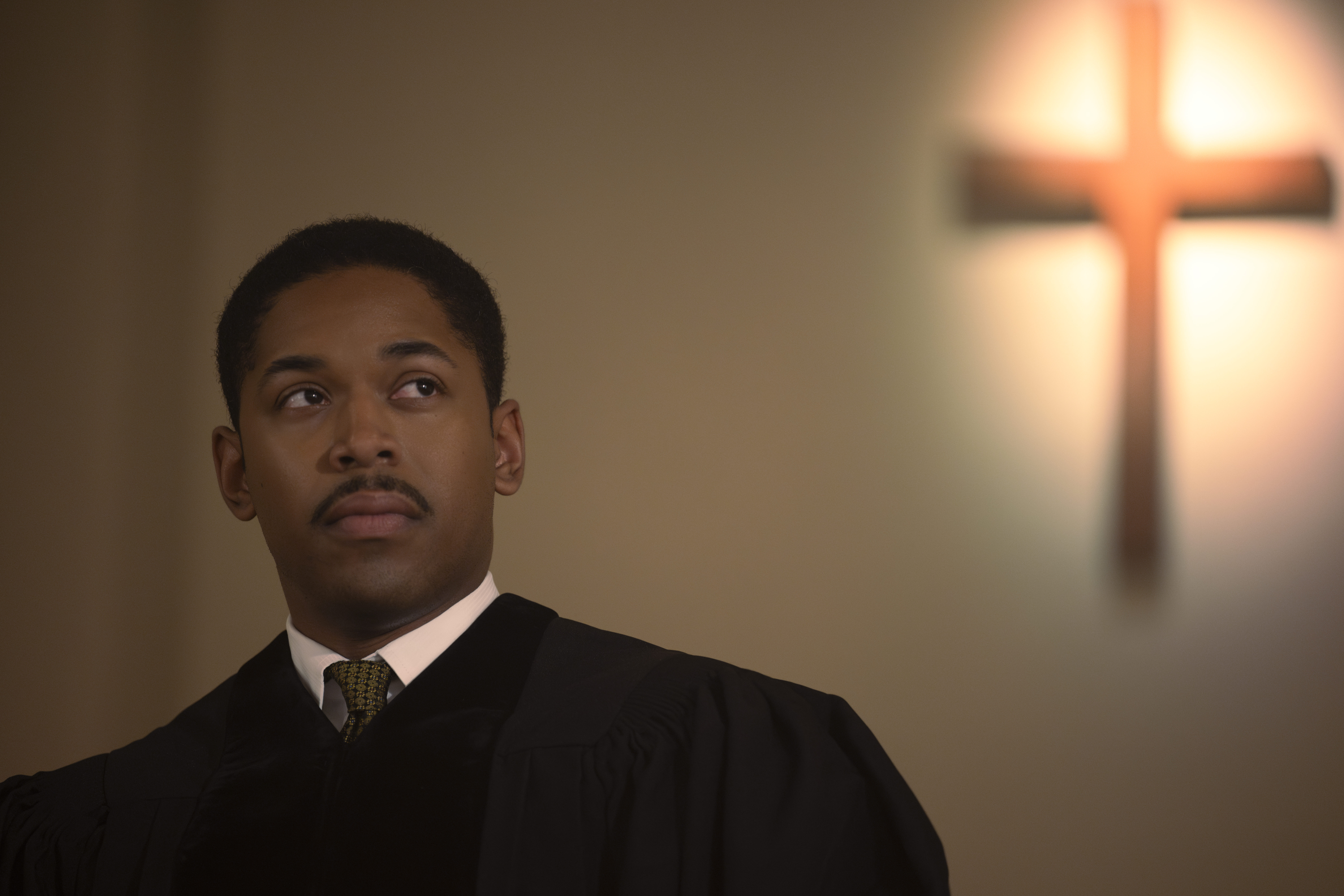
An emphasis on mental health isn’t the only striking difference in this series about the leaders. The show also turns the spotlight toward King’s wife, Coretta Scott King, and Malcolm X’s wife, Betty Shabazz, two women who have not received as much recognition as their husbands for their contributions as activists. “Genius” shows how the women were multidimensional people who had hopes, dreams, disappointments, immense skills and so much more.
Coretta Scott King’s love of music and her incredible singing talent are explored through the beautiful performance of Weruche Opia, who stars as the mother of four. Shabazz’s passion and dedication to education and teaching are reflected through Jayme Lawson’s excellent enactment. Both actresses told theGrio that portraying the men’s spouses, showing their full humanity, was essential to their own personal understanding — and appreciation — of each woman.
“It’s so easy to just sideline them to be taking on the dreams of their husbands,” Lawson said. “Malcolm and Martin couldn’t be the men who have such great hope and dreams if they also weren’t partnered with women who had the capacity for such great hope and dreaming as well. What’s beautiful about it is, yes, there may have been sacrifice or compromise in their hopes or aspirations or dreams. And yet, at the end of the day, they still got to live them out.”
Lawson went on to share how Shabazz was still able to pursue nursing and education, later earning her doctorate in higher education administration and curriculum development.
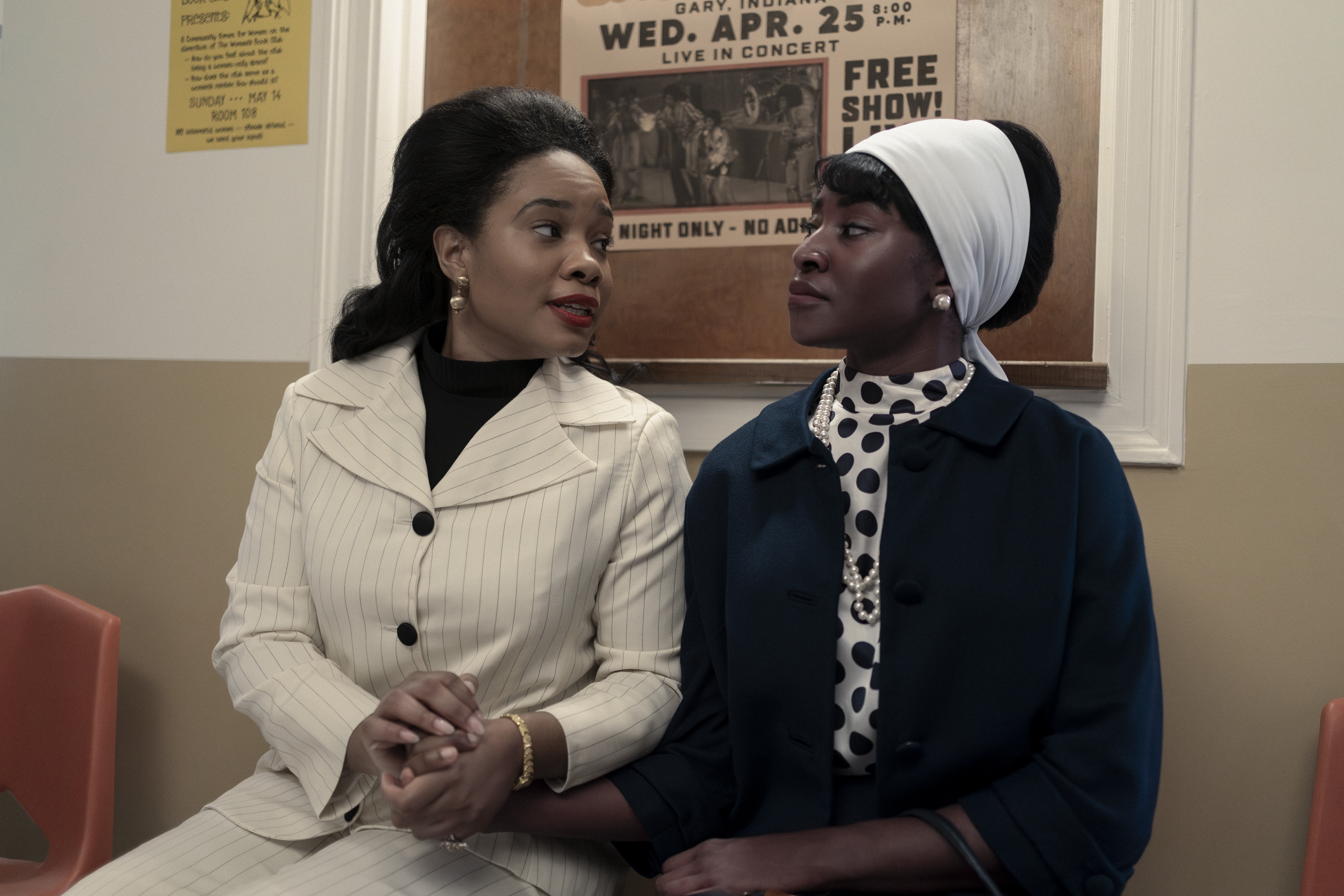
“I think that’s a lesson in and of itself,” she said. “That it’s OK to compromise and make sacrifices. And knowing that, that does not necessarily mean that the dream is therefore deferred.”
Opia explained how Coretta Scott King’s music was her “saving grace,” but she found that “the cause for justice was greater than her love for music” and made the hard decision to pivot away from a music career. Nevertheless, she was able to incorporate her love of music within the cause.
“She was still able to use her gift to serve her other purpose, which is so beautiful,” Opia asserted. “To know that she had that desire in her, and she still found ways to exercise that love and integrate it with her other purpose is really lovely to see. I’m glad we were able to capture that.”
“Genius: MLK/X” premieres on Nat Geo today, Feb. 1, and will be available to stream on Disney+ and Hulu on Feb. 2.
Never miss a beat: Get our daily stories straight to your inbox with theGrio’s newsletter.

